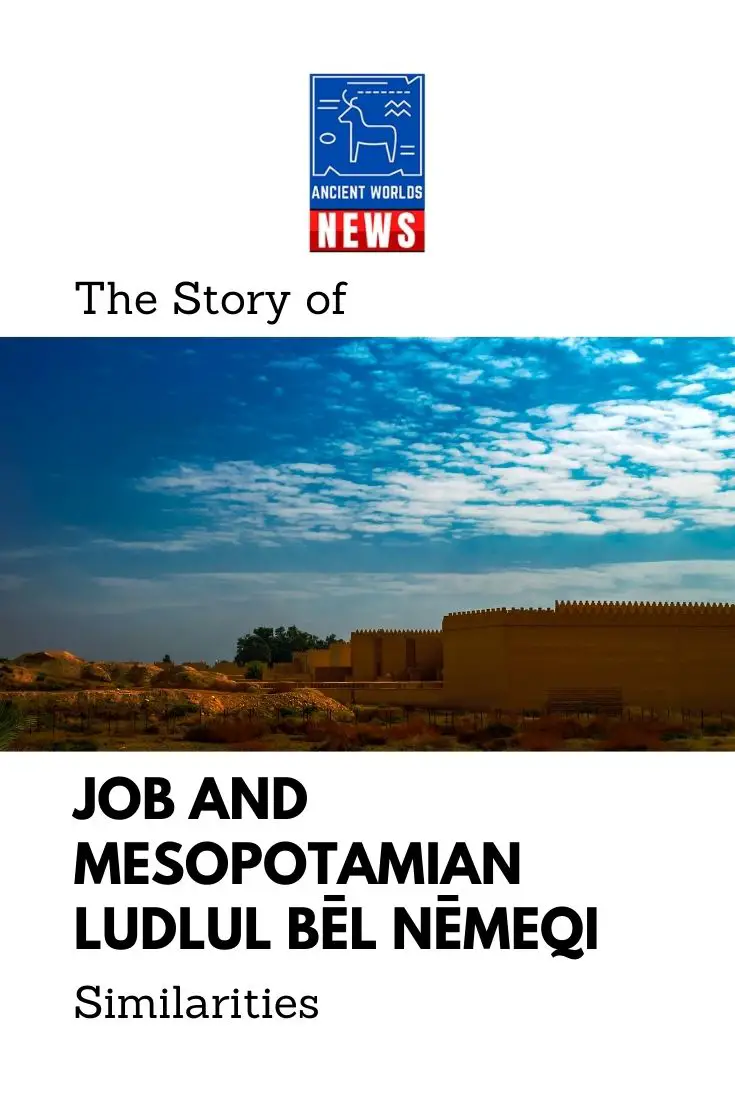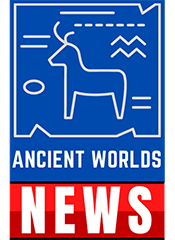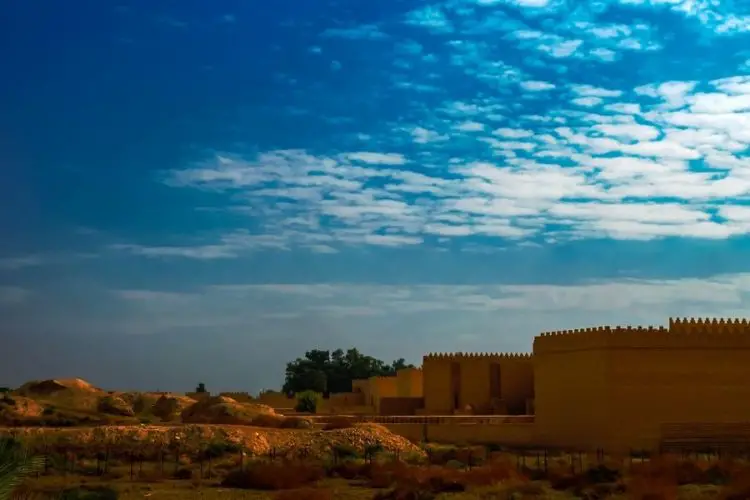The stories of Job and Shubshi-meshre-Shakkan have much in common. The two protagonists have identical beliefs and values and end up rewarded for their faith.
Ludlul bēl Nēmeqi
Ludlul bēl Nēmeqi (tr. “I will praise the Lord of Wisdom”) is a Mesopotamian poem. In English, it is called The Poem of the Righteous Sufferer. The poem is written in Akkadian, the language of old Mesopotamia. In the poem, a man named Shubshi-Meshre-Shakkan is afflicted and suffers unjustly even though he is a good person.

Shubshi-Meshre-Shakkan is not sure why he suffers; he has faithfully performed all of his duties to the gods. He wonders if perhaps what man considers good is actually considered evil by the gods. After suffering for some time, God delivers him from pain, and he can continue with his life.
The Story of Job
In the Bible, Job is a rich man who lives with his big family and his vast livestock in a place known as Uz. He is a righteous man who does everything God expects of him. At some point, Satan approaches God and tries to convince him that Job only obeys because of the wealth that God has blessed him with. Satan tells God that if he grants him permission to punish Job, Job will deny God and curse him. God then allows Satan to punish Job, provided that he does not kill him in the process.
In one day’s time, Job loses his servants, his livestock, and ten of his children due to natural catastrophes and invaders. Job is so devastated that he tears his clothes into pieces and shaves his head in mourning. But, despite everything, he still praises the Lord in his prayers. Satan approaches God again and asks if he can test Job for the second time. God agrees. Job becomes infected with painful sores on his skin. When his wife sees this, she advises Job to curse God, stop fighting, and die. But Job, ready to suffer to the end for the sake of God, resists.
As a sign of respect for what he has gone through, Job’s friends Zophar, Bildad, and Eliphaz then come and stay with him for seven days in silence. Finally, on the seventh day, Job speaks, and all four men talk about Job’s suffering. Job says that he hates the day he was born and that life and death are like light and darkness.
Eliphaz insists that Job must have committed some sins, which would explain all his suffering. He thus advises Job to seek forgiveness from God. Zophar and Bildad agree. Bildad posits that Job’s children died because of their own sins. Zophar even goes so far as to say that maybe Job deserves a bigger punishment than what he has already endured. Their remarks anger Job, and he calls them worthless physicians.
Job’s friends are not happy with his reaction to their remarks. They feel as if Job does not exhibit enough fear and respect. They continue to drive their point home that people should be punished for their wickedness. Job tells them that, even if he has committed sins, it is none of their business. Job’s friends do not know how faithful he truly is. Job believes that there is a witness in heaven who is aware of his innocence.
Job wonders why God would punish anyone that much for their sins, especially when God has the power to forgive them and absolve their sins. However, Job still believes that God’s ways are beyond human understanding.
With time, the sufferings become too much for Job, and he starts becoming impatient and afraid. He complains that God allows wicked people to succeed while he and other innocent people suffer. Job wishes he could confront God, but God is nowhere to be found physically. Job also wants someone to mediate between him and God because he doesn’t feel worthy enough to face God by himself. In spite of it all, Job still remains faithful to his creator.
Elihu, another friend of Job’s, tells him that he has been blaming himself rather than blaming God. He also says that God speaks to people in many ways – ways that include physical pain. According to Elihu, it is possible that God uses physical pain to show his love; when someone goes through pain and then recovers, they realize that God loves them because he prevented them from dying.
God finally comes along and heals Job. He then gives Job twice as much as he lost.
Similarities
In both stories, an innocent person suffers. In the Bible, it is Job, while in the Sumerian religion, it is Shubshi-meshre-Shakkan. Both protagonists also remain faithful to God despite their suffering. Even though Job’s wife and friends are not helpful, even exacerbating the situation, he does not lose faith in God. Instead, he just waits. Similarly, in the Sumerian religion, Shubshi-meshre-Shakkan remains faithful to the gods and waits patiently for things to get better.
In each of the stories, Job and Shubshi-meshre-Shakkan wonder why God is punishing them, even though they are righteous. Both of them lament and wish to confront God, wanting to ask why God is making them endure this suffering. Eventually, however, their patience and faithfulness pay off. Their good health is restored, and in Job’s case, he gets back double what he has lost.
Conclusion
These two stories have much in common. Both Job and Shubshi-Meshre-Shakkan must endure suffering as a test of their faith. Likewise, they are each ridiculed by people close to them, people who even advise them to deny God, which they both refuse to do. These others believe that Job and Shubshi-Meshre-Shakkan suffer because they must have sinned. However, neither man listens to the ill advice, and instead sticks by God, who eventually comes through for them. Finally, they are both healed and able to enjoy life again.

